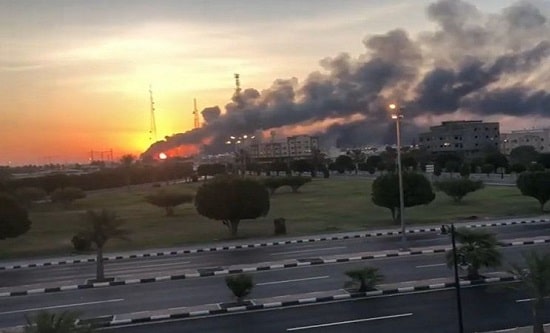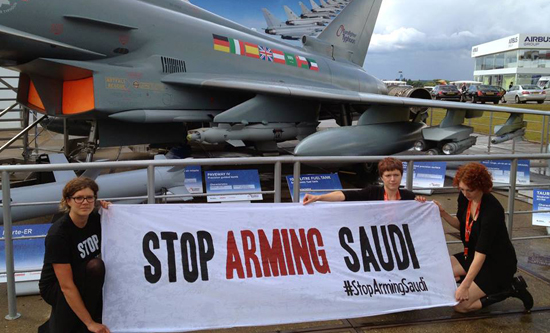Saudi Arabia humiliated as Houthis fight on
- Details
- Created: Thursday, 17 October 2019 14:16
- Written by Toby Harbertson

On 14 September the Abqaiq and Khurais oil facilities in Saudi Arabia were attacked with drones and missiles, temporarily halving the country’s oil production and halting more than 5% of global oil supplies. The attack was claimed by the Houthi resistance to the Saudi-led war in Yemen, although Saudi Arabia and its supporters quickly blamed Iran. For Saudi Arabia, as well as its allies in the US, Britain and Israel, it was a humiliation. With some of the biggest military budgets in the world and the most extensive ‘intelligence’ networks, they failed to prevent a hugely disruptive attack carried out with equipment which cost just tens of thousands of dollars. TOBY HARBERTSON reports.







